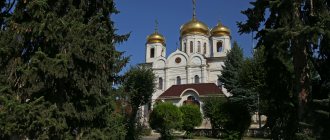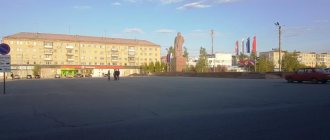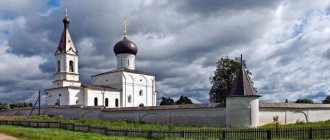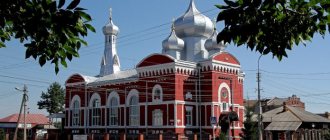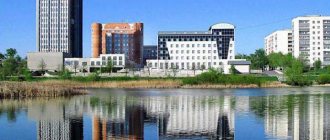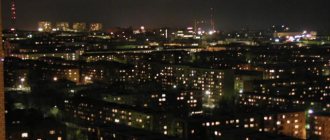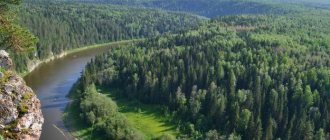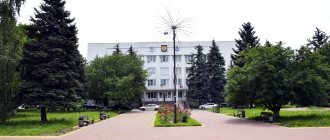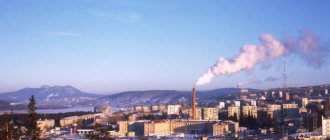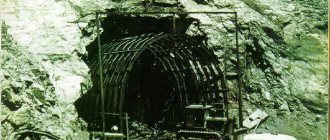City `s history
Even in ancient times, this territory was inhabited. During excavations, archaeologists found household appliances and various tools here. It is also known that people in ancient times used local sources of hot water. The baths, which were cut down specifically for healing procedures, have been preserved.
During the time of the Golden Horde, namely in 1334, one can find the first mention of Bish-dag, which means “five mountains”. The protection from enemies that the landscape provided has always been a big advantage of this area. In 1561, a marriage was concluded between Maria Temryukovna, who was the heiress of the Kabardian ruler Temryuk, and Ivan the Terrible, thanks to which later this area was given greater importance, and political ties between the local population and Moscow were strengthened.
Also, references to local sources appeared in books of 1627. Under Peter I, scientists began to actively study them. The moment when the final rights to this area passed to the Russian Empire can be called 1774. A peace treaty was concluded with Turkey.
Route from Pyatigorsk: Where to go in the vicinity of the city
If you have one day of free time, you can devote it to getting to know the outskirts of Pyatigorsk. There are many natural and man-made attractions here: resort towns, huge parks, ancient mansions.
Essentuki Resort
© Anna Kudryavtseva
It’s more convenient to start your walk from Essentuki - from here to Pyatigorsk is about 20 kilometers. A few hours are enough for a short acquaintance with the city; you can leisurely get to know Essentuki for several days.
If you don’t have that much time left, first go to Theater Square, the cultural center of the resort. The fountain gurgles on the square, and the most remarkable buildings are the Concert Hall. Shalyapin and the Museum of Local Lore. Nearby is the Zero Kilometer of Love, it marks the beginning of a new life for lovers and newlyweds.
Conveniently, the monument is located right at the entrance to the Resort Park. Essentuki Resort Park is a remarkable place in all respects. This is a monument of nature, culture, architecture. It’s nice to stroll along the walking paths - health paths, and drink some water in one of the pump rooms (it’s free, but it’s better to discuss the appointment with your doctor in advance). And also admire the architecture of the park: don’t miss the elegant gazebos - Musical, Oreanda, and Chance Encounters.
The large territory of the park is divided into several alleys, where baths, drinking galleries, and the Theater Park are located. Head to the north-eastern part of the park, from here you can go through the arch to the famous Semashko Mud Bath.
Mud bath named after Semashko
© Anna Kudryavtseva
This majestic building will take us back to the times of antiquity - there are beautiful columns, porticos, sculptures of ancient Greek gods, stone bas-reliefs. Even if you have no need to improve your health yet, go just to look at the building from the outside - and be sure to take a photo as a souvenir.
Remember the famous scene from the film adaptation of “12 Chairs” by Leonid Gaidai? The one where the former leader of the nobility asks for food - it was filmed right at the entrance to the Semashko Mud Bath. Having captured the memorable place, you can move on to Kislovodsk.
You can read more about interesting routes and beautiful places in Essentuki in our special review material.
Read more: Sights of Essentuki
When you arrive in Kislovodsk, park at the railway station building. This is very convenient: firstly, the building itself is a monument to the history of Kislovodsk; it is over a hundred years old. Secondly, there is excellent inexpensive parking next to it, and it is also the most convenient place to start your walk around the imperial resort.
Sunny Kislovodsk
© Julia Alisova
Kislovodsk is one of the most beautiful cities in the Caucasus. You will see this for yourself if you come to visit - even in 1 day you can fall in love with the resort pearl of Russia.
Pay attention to the old railway station building, opened at the end of the 19th century. By the way, in one of the premises there is an exhibition telling about the formation of railway transport in the Caucasus. If you have a chance, stop by to see the exhibition.
Very close to the station there is a majestic palace - the State Philharmonic named after. V. I. Safronova. Its history begins in 1895, with the legendary Kursaal - here the first holidaymakers of Kislovodsk listened to music and watched concerts.
The Kursaal met the highest standards of European relaxation: theatrical performances, a library, poetry readings, classical music - and from the “stars” of the movement. Fyodor Chaliapin, Matilda Kshesinskaya, Isadora Duncan, Sergei Rachmaninov performed here. It is interesting that the building is open “according to the profile” today.
Literally 5 minutes of a pleasant walk - and you will come out onto Kurortny Boulevard, a place of attraction for all guests and residents of Kislovodsk. The main tourist thoroughfare of Kislovodsk is not only a pleasant place, but also very rich in cultural monuments - this is where the bright “business cards” of the resort are located. This is the very place in Kislovodsk that needs to be added to your must visit list of attractions.
On Kurortny Boulevard there are the most beautiful mansions of the Empire era, souvenir shops, shops, cafes and restaurants. It was from Kurortny Prospekt that the history of the resort city of Kislovodsk began - by the way, the well-known Bernardazzi brothers were involved in its improvement. It's equally fun here both during the day and late at night.
On Kurortny Boulevard, pay attention to the building of the Resort Administration, it was built in the middle of the 19th century, the Resort Clinic, the building of the Narzan sanatorium, built at the beginning of the 20th century as the Grand Hotel. Many celebrities visiting the resort have stayed there.
Next comes a whole string of beautiful palaces, led by the Main Narzan Baths. Unusual Moorish turrets and majolica panels invariably delight resort guests; this is one of the most photographed places in Kislovodsk. Nowadays, a prestigious hotel has been opened in the restored palace, but anyone can still visit it (as well as undergo healing procedures). By the way, the complex’s restaurant invites all resort guests to breakfast, lunch and dinner, served as a buffet. Guests usually leave excellent reviews about them.
Narzan Gallery
© Julia Alisova
Also, tourists cannot pass by the magnificent building of the Narzan Gallery, built in the romantic Gothic style. The building was built in 1858, according to the design of the architect Upton.
Surprisingly, but true: the palace, built almost 200 years ago, has survived intact to this day, and is now used for its intended purpose. In the Gallery's pump rooms you can try different types of narzan - do you like sulfate or dolomite?
It’s nice that you can drink healthy water completely free of charge. A little tip: if the main building is closed for a break, you can drink water in a small gazebo around the corner. There are also several types of sources available there.
This is where you can end your pleasant walk around Kislovodsk; these beauties are more than enough for several hours. Getting to know the Resort Park of Kislovodsk should be postponed until your next visit; its territory is huge. You can spend more than one day walking along it.
What else to do in Kislovodsk, and what to see first, read our special material.
Read more: What to see in Kislovodsk in 1 day
Population
Today Pyatigorsk is a famous resort city where people of different nationalities live. As of 2014, the population of Pyatigorsk was 145.95 thousand people, and its density was 1.5 thousand people. per sq. m.
This is largely due to the fact that in 2011 4.5 thousand people moved here, having left other areas that are part of the Stavropol Territory, more remote areas, and also from abroad.
The trend is still that the population of Pyatigorsk is growing. In 2015, a ranking was compiled by population among Russian settlements. Pyatigorsk took 69th position.
Home\Stavropol Territory\Administrative-territorial division\City and municipal districts
Resort city of Pyatigorsk, Stavropol Territory
Official website address: www.pyatigorsk.org
General information about the municipal district (urban district):
Administrative center: municipality resort city of Pyatigorsk
Area of the district (urban district): 103.7 km²
Population size: 213,9
Postal address of the administration: 357500, Stavropol Territory, Pyatigorsk city, Lenin Square, 2
Administration phone:
Head of a municipal district (city, urban district)
Voroshilov Dmitry Yurievich
Date of election: date of election (contest) – 05/19/2020, date of taking office – May 19, 2020
Term of office: 5 years
Head of the representative body of a municipal district (urban district)
Full name: Pokhilko Lyudmila Vasilievna
Date of election: October 2021
Term of office: 5 years
About the municipal formation of the resort city of Pyatigorsk:
Pyatigorsk is the largest city in the CMS region both in terms of territory and population. It is located 196 km southeast of Stavropol, 24 km south of Mineralnye Vody, at an altitude of about 525 m above sea level. It is the largest in the CMS region both in terms of territory and population. The total land area of the city is 103.7 km². The population of Pyatigorsk together with its suburbs is more than 213 thousand people. Population density is 2,105.2 people/km². Pyatigorsk is the oldest balneological and mud resort of federal significance, a trade, scientific, cultural and tourist center of the ecological resort region of Caucasian Mineral Waters. Since January 19, 2010 it has been the center of the North Caucasus Federal District. Of the Kavminvod group of resorts, Pyatigorsk has the most diverse natural healing resources. There are over 40 mineral springs here, differing in chemical composition and water temperature. Near Pyatigorsk, from Lake Tambukan, highly valuable sulfide silt mud is extracted from Lake Tambukan. The resort has the largest radon clinic in Europe, drinking galleries, pump rooms, inhalation rooms, baths, and mud baths. The health resorts of Pyatigorsk are filled with vacationers even in the off-season. One of the main symbols of Pyatigorsk is Mount Mashuk, located in the resort area of the city. Height is 993 m. On the slopes of the mountain there are 10 km long paths. Mashuk is a place of recreation and extreme tourism, a keeper of various thermal mineral waters, rare and endangered plants.
Brief historical background
Pyatigorsk arose at the end of the 8th century as one of the points of the Azov-Mozdok fortified line, established by Catherine II to protect the southern borders of the empire. The fortress, erected in 1780 “near the Beshtov Mountains,” began to be called Konstantinogorsk, after the name of Konstantin, the grandson of the empress. Not far from the fortress, the settlement of Hot Waters appeared, where visitors rested at the healing springs. Thus, 1780 began to be considered the date of the founding of the city of Pyatigorsk. When the famous Russian scientist-traveler Pyotr Semyon Pallas visited Pyatigorye in 1793, the soldiers who lived near the springs were already familiar with their healing properties, and from them the scientist learned that sulfur baths are useful for skin diseases, rheumatism, gout, etc. .
The history of Pyatigorsk as a resort begins in 1803, when the famous rescript of Alexander I appeared, according to which our area is given special national significance. The entire subsequent history of the city has confirmed that in terms of wealth, diversity, quantity and value of mineral waters, Pyatigorsk has no equal in the world. With the assumption of the post of Chief Administrator in the Caucasus and Georgia in 1816 by General A.P. Ermolov, a new era began in the history of Hot Waters. He paid attention to the Caucasian resorts, carried out a number of innovations that changed their appearance and management organization. In 1819, on his orders, the old baths at the Hot Spring were rebuilt, a site was planned on the Mashuk ledge, and a new bath building was built, called “Ermolovsky” . He also turned to the St. Petersburg Construction Committee with a request to create projects for government buildings. The area near the springs was planned into residential areas, presumably by Ermolov himself. Residents of the cities of the Caucasus province were offered to move to a new settlement at the foot of Mashuk, while receiving a number of benefits. This is how the Goryachevodsk part of the future Pyatigorsk was formed: the current streets were laid out - the beginning of the avenue named after. Kirov, K. Marx, Krasnoarmeyskaya, Anisimova, Buachidze. In 1818-1824. The first residential estates appeared in these quarters. In 1823, a construction commission was created on Hot Waters, which carried out Ermolov’s plan to build a resort area. At his request, the first architects of Pyatigorsk, architects Giovanni and Giuseppe Bernardazzi, were sent to the Caucasian waters by the Medical Department of the Ministry of Internal Affairs. In October 1624, F.P. was appointed Chief Doctor at the Caucasian Mineral Waters. Conradi. Beginning in 1823, the development of Hot Waters proceeded at a rapid pace. Projects developed in St. Petersburg by the architect L. Charlemagne were implemented. Under the supervision of the Construction Commission and with the direct participation of the Bernardazzi brothers, a hotel with a restaurant, a stone building of the Nikolaevsky Baths, a House for poor officers, wooden Sabaneevsky, Soldiers' Baths, etc. were built here. Mineral springs were equipped, a boulevard was laid out, the State, Emanuelevsky, Elizavetinsky, Nikolaevsky gardens were built. a flower garden, the Aeolian Harp gazebo, Diana's grotto and Lermontov's grotto, and the Elizabethan Gallery appeared. Much attention was also paid to private construction. In 1827, A.P. Ermolov was relieved of his post. However, Hot Waters did not go without the close attention of higher authorities. General G.A. Emanuel, the head of the Caucasian line and the head of the Caucasus region, paid great attention to the implementation of Ermolov’s project. It was he who created the park near the Elizavetinsky spring (Emanuelevsky) in 1828, he named the grotto near the Nikolaevskie baths the grotto of Diana, and on his initiative the path to the top of Mashuk was built.
List of settlements located on the territory of a municipal district (urban district) in the form:
| № | Name of municipality | Name of the locality | Population, people |
| urban district, resort city of Pyatigorsk | city of Pyatigorsk | 145885 | |
| urban district, resort city of Pyatigorsk | working village of Goryachevodsky | 36757 | |
| urban district, resort city of Pyatigorsk | workers' settlement of Svobody | 17706 | |
| resort city of Pyatigorsk | village Konstantinovskaya | 8537 | |
| resort city of Pyatigorsk | village Nizhnepodkumsky | 2288 | |
| resort city of Pyatigorsk | village Middle Podkumok | 1379 | |
| resort city of Pyatigorsk | Zolotushka village | 793 | |
| resort city of Pyatigorsk | Privolnoye village | 426 |
Demographic situation
Considering the scale of the entire Stavropol region, we can say that in 2014, 36.68 thousand people were born, while 32.825 thousand people died. There are more complete families than those where the child is raised by one parent. 267 children were adopted in 2014.
However, it is worth noting that there are still a lot of divorces. For example, the ratio of marriage and divorce processes in 2015 was 100 to 58. We can conclude based on the statistics collected by the employment center: Pyatigorsk overall shows an increase in demographic indicators.
For example, in 2010 the density was 2.033 thousand people/sq. km, and in 2014 – 2064.23 thousand people/sq. km. km. In terms of natural growth, in 2014 this settlement was ranked 64th. In addition, in the same year, 2,290 people were born here, thanks to which this territory took 104th place in the Russian Federation. 2166 people died. (ranking position 100). That is, we can say that birth rates exceed mortality rates, which is undoubtedly a positive sign.
The population of Pyatigorsk is steadily growing. According to official data, 175 people migrated from here in 2014, although in reality the situation is turbulent, and we can talk about a serious outflow of the Russian population. 5,832 thousand people moved here, of which 3,078 thousand were female and 2,754 thousand were male. In terms of the influx of people, it was ranked 87th.
National composition
The last census was carried out in 2010, based on the results of which the population of Pyatigorsk can be characterized as follows: the majority of Russians are here (101.857 thousand), that is, 71.47%.
The second largest group is representatives of Armenian nationality, of whom there are 18.72 thousand people. (13.31%). The next largest number of people on the list are Azerbaijanis, of whom there are 4.35 thousand (3.05%). There are also a lot of Ukrainians – 2.55 thousand people, or 1.79%. There were 1.65 thousand Kabardians (1.16%).
There are also a large number of other nations, whose total number is 13.14 thousand (9.22%). In total, the population of Pyatigorsk was 142,511 thousand people as of 2010. It can be seen that the Slavic population constitutes the bulk of the population in the city. The figures do not give much cause for concern, but some details elude statistical services. In reality, everything is somewhat less rosy.
Outflow of the Russian population
It is worth noting that the population of Pyatigorsk consists less and less of people of Russian nationality. City authorities are trying to refute these rumors. However, there are reasons to believe that the situation has become quite alarming due to the fact that more and more Caucasians are coming to the city. The Slavic population often prefers to move closer to the center of the country. The data coming from the authorities is quite scattered. People from neighboring areas flock to Pyatigorsk because there is a very large market there, where you can engage in wholesale and retail trade.
We can talk about a high level of illegal migration, although official data states that the population of the city of Pyatigorsk is increasing mainly at the expense of Russians.
Recreation areas
In one of the parks there is Lake Proval, where, in addition to water activities, you can enjoy its unique beauty. Hidden in the valley of the Podkumok River is a lake - a wonderful place to relax with equipped beaches, gazebos, and umbrellas to protect you from the sun. There is a boat station on the beach where vacationers can enjoy boating and catamarans.
Vacationers also have many cafes at their disposal where they can have a snack and enjoy the cool air conditioning. Within walking distance there are boarding houses, hotels, sanatoriums and hotels where anyone can stay and receive medical services, as well as arrange group or individual excursions to the mountains and cultural heritage monuments.
Red flags
It may seem that native residents are embarrassed by the strong influx of migrants coming to the city to work, but there are a number of other important reasons. Over the past few years, this territory has become increasingly populated by visitors who came to work. Therefore, the only way to somehow arrange one’s life was to contact the employment center (Pyatigorsk), whose vacancies do not always meet the expectations of applicants. Spiritual governance for Muslims was justified, which made terrorist attacks more likely.
And the explosion really took place in Pyatigorsk. Explosives were planted in the Maryinskaya village and murders were committed. People simply began to worry about their own lives. Stavropol region began to be compared with Kosovo. At that time, the authorities tried their best to reassure the public, assuring people that nothing terrible was actually happening. Journalists, as a rule, were bribed so that they would not stir up unnecessary unrest and would write what was beneficial to the city government.
Natural landscape
Directly in the center of the resort city of Pyatigorsk, Mount Mashuk rises, the views from which will take the breath away of tourists and local residents. Mount Beshtau is visible - the highest of the five mountains. The peaks of Elbrus and Kazbek adorn the landscapes of the Main Caucasus Range.
The convenient geographical location (latitude 44 ⁰ and 2.3862 min.) where Pyatigorsk is located determines its unusual landscape, unique climate, mountain air, excellent opportunities in the field of agriculture, a wide range of medical services of local resorts make it attractive for people in need of treatment, and tourists.
Discrimination against Slavs
Chechen entrepreneurs were actively buying real estate at that time. So even when Russians remain in the city, their life cannot be called cloudless, comfortable and calm.
Another depressing trend is that, although Slavs mostly live in Pyatigorsk, 50% of positions in the management of law enforcement agencies are occupied by visitors from the Caucasus. This, of course, affects the results of their work activities.
Social support for the population of Pyatigorsk is becoming an increasingly pressing issue. Russians are beginning to be openly discriminated against. If conflicts break out between them and Caucasian guests, the authorities, as a rule, help ensure that the matter is resolved in favor of the latter.
Mud
All resorts use mud from Lake Tambukan for mud treatments. Mud has a positive effect in the treatment of the musculoskeletal system, as well as female and male diseases.
The following types of mud therapy are used in sanatoriums:
• mud wrap
• mud baths
• mud applications
Lack of social guarantees
There is also a problem of employment for the indigenous population. The Employment Center (Pyatigorsk) does not help much in finding a normal job. A person does not feel protected, does not see a way to self-realize.
This can already be called a sufficient reason to leave the region. It is much easier to sell a house and leave when migrants arrive and occupy more or less attractive positions.
Also, Central Russia is more attractive for students. There are more opportunities and prospects there. The contract is cheaper, there is no constant fear and anxiety, radical Islamists with their claims. Military operations are taking place in Dagestan, which makes this neighborhood even more dangerous.
For the Caucasian population, this territory is considered calmer. Here, on the contrary, they have a chance to achieve something, to succeed in life. Everything is learned by comparison, so with reference to the hectic battlefield one can call Pyatigorsk a paradise. Not only Russians migrate from here, but also representatives of Armenian nationality who have been living here for quite a long time. As a rule, they move to the territory of the Krasnodar Territory.
Treatment
The medical facilities in the KMS sanatoriums are constantly updated and meet all European standards.
Essentuki specializes in the treatment of diseases of the digestive system, liver, metabolic disorders, and biliary tract.
Zheleznovodsk specializes in the treatment of diseases of the digestive system, kidneys, and urinary tract.
Pyatigorsk specializes in the treatment of diseases of the nervous system, blood vessels, musculoskeletal system, digestive organs, skin diseases, vibration disease, and occupational polyneuritis. The resort has radon springs, which have a positive effect in the treatment of the musculoskeletal system.
Kislovodsk specializes in the treatment of circulatory diseases and diseases of the nervous system.
Need for change
The situation has not yet reached critical intensity, but it is perhaps foolish to sit and wait for this to happen with folded hands. The situation was made more acute by murders in the Predgorny region, as well as in the Maryinskaya village.
It is difficult to talk about the ability of law enforcement agencies to ensure order in the city. Until decisive measures are taken to eliminate stressors, the indigenous population may continue to leave the city, fearing for their own fate, although according to the latest census, the percentage of Russians has fallen slightly.
There is an opinion that the infringement of the rights of the Slavic population has become just another topic for speculation. In any case, regardless of the ethnic composition of the population in Pyatigorsk, people should never lose their human appearance and switch to outright aggression.
Holidays and festivals in Pyatigorsk
Pyatigorsk is one of the most vibrant and culturally rich cities in the Caucasian Mineral Waters. Almost all year round you can find something interesting here: concerts, ethnic festivals, dance and poetry evenings, theater seasons, fairs.
New Year and Christmas are the most joyful holidays of the year; residents of Pyatigorsk celebrate in the company of guests, brightly and cheerfully. You can spend New Year's Eve at the main city tree, surrounded by laughter, noise and fireworks. During the New Year holidays you can go ice skating, and on Christmas Eve guests are treated to “Christmas Meetings” .
On February 23, residents and guests of the resort congratulate the defenders of the Fatherland, and at the end of winter they brightly and cheerfully celebrate Maslenitsa . The main folk festival takes place in the city park named after. Kirov, concerts, fairs, and performances of creative groups are organized here. Guests are entertained by animation programs.
On March 8, the operetta theater will host a festive concert in honor of the fair half of humanity, and a little later - the already traditional children's festival “Art Parade of Fairy Tale Heroes” . It is attended by clubs, creative groups, students of art schools - everyone who is interested in creativity.
On May 9, Victory Day - parades, concerts, theatrical programs, honoring veterans, and fireworks. And on June 1, Children’s Day, a festive theatrical program “Magic City” and an asphalt drawing competition are organized for the younger generation.
The Operetta Theater is the center of cultural life in Pyatigorsk
© Julia Alisova
the opening of the swimming season is organized on Lake Novopyatigorsk ; a holiday awaits the townspeople and guests of Pyatigorsk. Concerts, competitions with gifts, fun game shows, and of course traditional beach holidays. However, throughout the summer, on weekends, concerts of a variety of performers take place in open areas - free and in the fresh air.
Pyatigorsk City Day is another reason to come to the resort in September. It is celebrated very cheerfully; these days Pyatigorsk turns into one cheerful concert venue: music, dancing, competitions, treats, sports competitions, a balloon festival.
Fans of good music will enjoy the autumn festival of jazz art . And poetry fans will appreciate the festive events dedicated to Mikhail Yuryevich Lermontov. “Lermontov Seasons” are held in Pyatigorsk regularly in order to preserve the cultural heritage of the poet.
